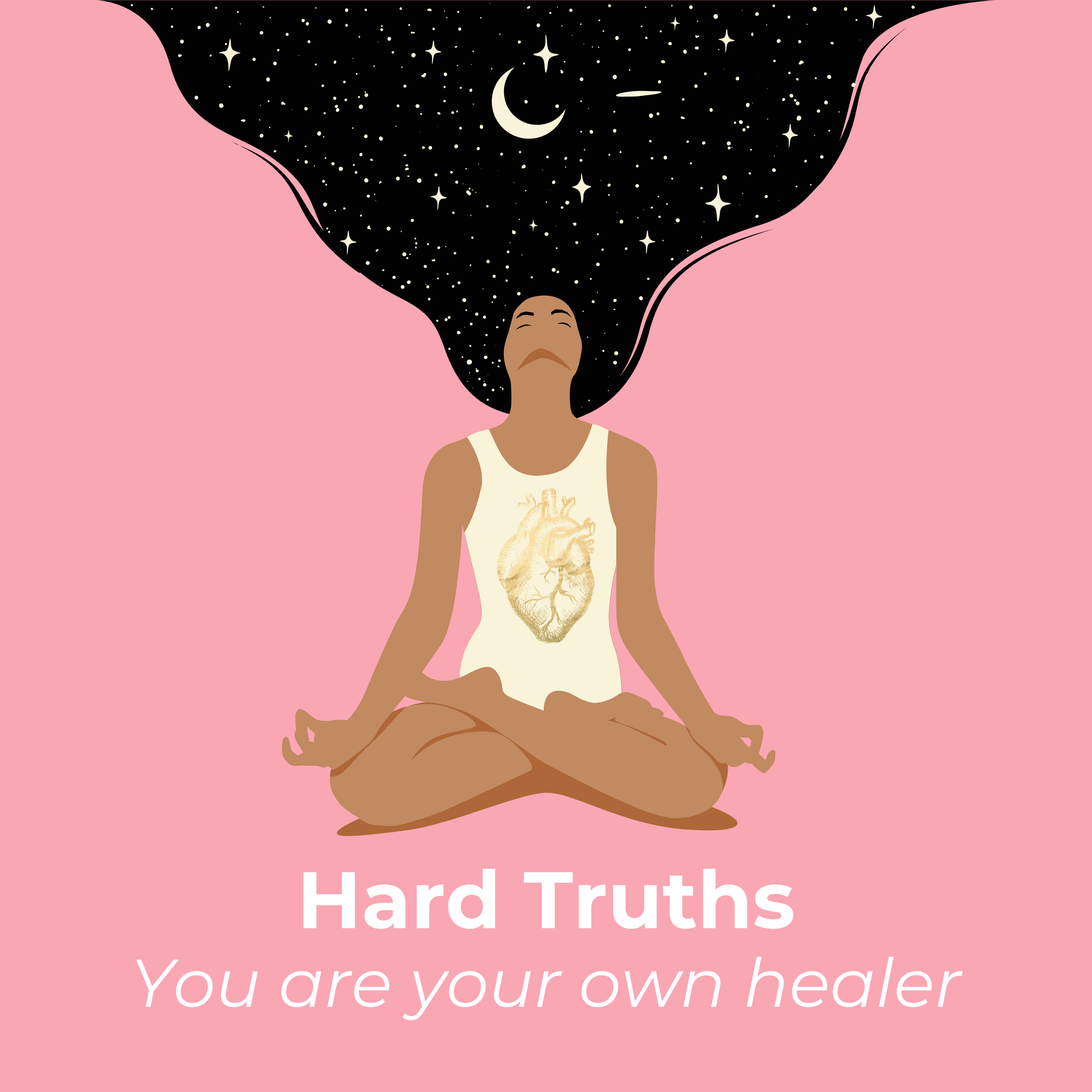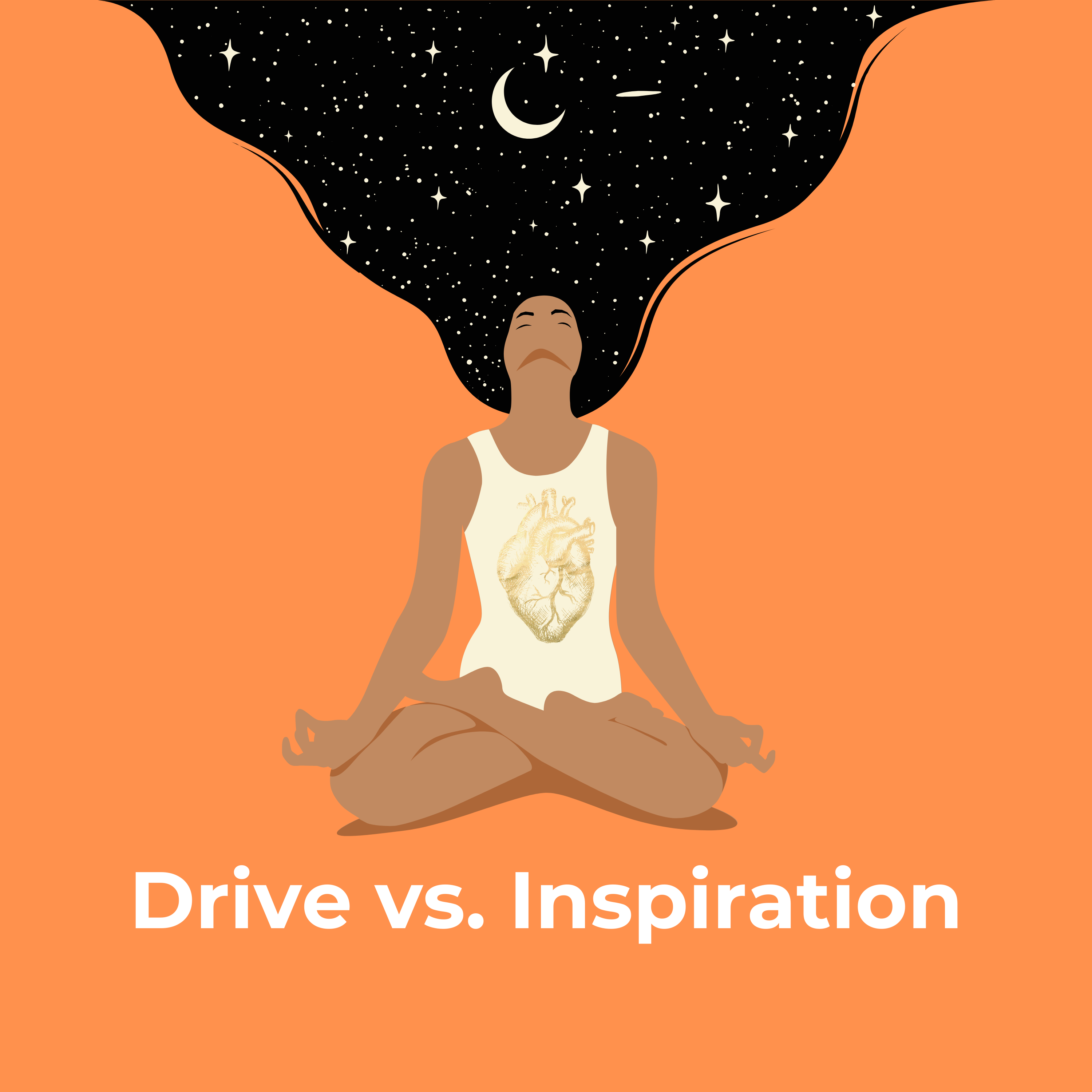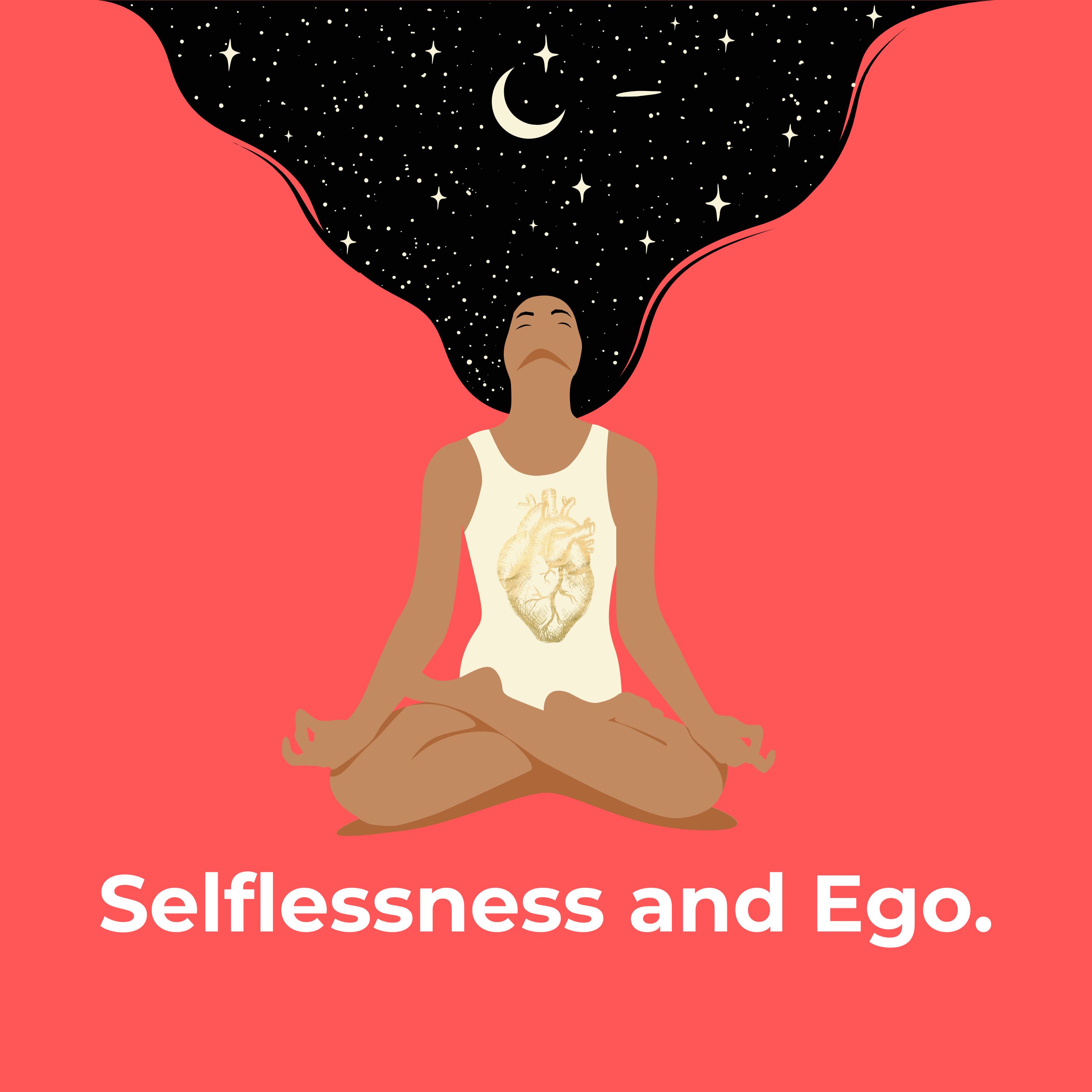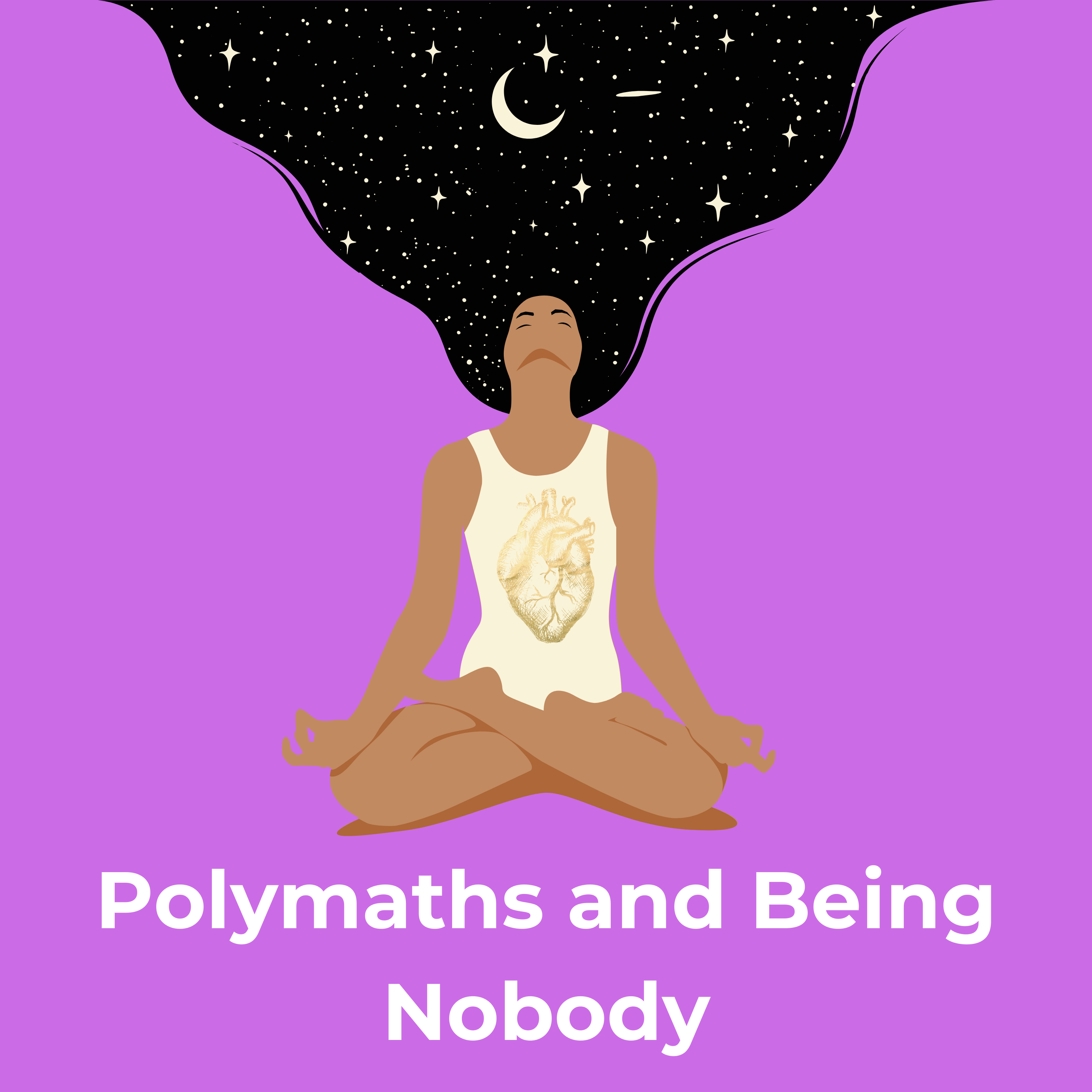Episode Transcript
[00:00:00] Speaker A: The world of healing can be treacherous, but suddenly, spiritual aims to provide real, honest, practical, spiritual knowledge and wisdom for the true seekers among us.
The goal is to ignite the divine human within each listener, raising the collective consciousness for our planet. We will challenge your preconceptions, push your buttons, and encourage deep reflection. We're not here to adhere to the status quo of what the new age spiritual market wants you to buy into and believe. Consider this your antidote to the woo woo and a place of woo. You.
[00:00:54] Speaker B: You know, I was trained as a western psychotherapist, and within my training, inherently, there was this model of people being flawed or broken.
Damaged even, I would say.
And I just don't subscribe to that. And it's taken me, you know, over 15 years, outside of my training to really understand that that is nothing. How I see human beings, and how I choose to see human beings as what I choose to see them as, is whole and holy and divine.
Our spirits are perfect, and our spirits are infinite. Again, these are. This is my perspective and how I see things. And you may not subscribe to that, and that is completely fine and great.
Please take what I'm saying. If it resonates and if it doesn't, you can toss it off to the side. But what is really helpful is to not see human beings as too broken or damaged goods. That's another term that I've heard about people or so overly traumatized that they're beyond all recognition or even help.
And having the perspective that people are holy and divine really gives people hope.
And it also gives you an in to being able to do some healing as much as you possibly can or even tolerate. And I find it sad that in our culture, there is that through line of people being damaged or really broken, and that healing is outside of their reach. And I just don't subscribe to that. And I feel like a lot of it's programming. And I think that we need to move away from that type of languaging, overly labeling, and pathologizing people, too. I think that that's something that we need to let go. Because if you're in the place of feeling broken and damaged, or too broken and too damaged, how is healing going to take place?
[00:03:18] Speaker A: I definitely agree with that. And for those of you listening, you can see in the title, we're talking about just some hard truths about healing. And to your point, about people thinking they're too broken or too damaged, I see that sort of a symptom of healers interjecting themselves in between a person and the divine, I think, making them think they need to go between. They need somebody who knows more than them or has, quote unquote, the connection, and you have to go through them, and I see that a lot. And then obviously, if you're going through them, they need to be compensated. And I think it kind of reinforces, hey, I'm broken. I'm damaged, and I need help from somebody else who, quote unquote, knows better or who has fixed themselves and that I can't do it myself. But I always think about this, well, you put yourself in the situation you're in, whatever it is, by yourself, so why could you not get yourself out of said situation?
[00:04:35] Speaker B: I think that healers can help and guide others, but if you're waiting for a healer to do all the work themselves and to fix you, because if you subscribe to brokenness, then you have to subscribe also to the fixing ideal. So I'm broken.
I need a fix.
I need someone who's a fixer. So it's like this whole chain, this chain of custody. It's like I've been traumatized and I need to fix this. I'm too broken. I'm too damaged to even broach my own healing.
And in some cases, you may have blind spots, and you would really benefit from having someone who can help you to see those blind spots or places where you can have a shift in perspective.
But then if you subscribe to I'm so broken, I'm just damaged beyond recognition, then I need to go to said healer that you referred to, Sean, who knows how to fix brokenness, and they have the cure insert. You can insert, take this pill, and this pill will make you feel better. Speaking of the, the institution that I was a part of, thinking of, just the pill popping nature of what's going on in the United States, it's like, let's have a pill for that. Everything has a pill. Everything has a fix.
And so if you stop subscribing to I'm broken beyond recognition, then rather than focusing on the brokenness, you're able to come out of that and look at what's going on in a more, I don't want to say disassociated way, but in a way where you have some space and some perspective and you can look at things more clearly.
[00:06:40] Speaker A: Yeah. And definitely I agree with the fact that, sure, we all need help at some point.
And I think a lot of people, they come across some sort of spirituality.
And I know I didn't think this, but I see this with a lot of people.
Well, some of them think they're broken, and some of them think they're too damaged, but other people will come across something and maybe recognize it, the validity of it, but think, well, it's just too late for me.
[00:07:18] Speaker B: I hear that it's too late for me for many things, and healing is one of them. And I work as a death doula. And death doulas help people and their families in the time of death, transition into death, and work with grief. And even at death, even when someone is in the phase of their life, where they're a week, let's say, away from dying, which in some. Some cases, one would say that's actively dying, there's healing available there. So even up to your final breath, you are able to find healing, resolution, disillusion of regrets, processing of grief and trauma. You're able to find that, you're able to have access to it. I also don't subscribe to it's too late for me. It's not too late for anybody. Are you still alive? Well, if you're still alive, you have the opportunity to change whatever you want within your life, including working on trauma or processing any grief or sadness or anything, really, that you have in your life. It's not too late for anybody.
[00:08:36] Speaker A: So for those of you out there who are listening, who think it's too late, what are some of the things they can do, Maria, to in their own mind, to help them get past that thought that, yeah, I'm too far gone, I'm too far old.
I know you mentioned there's always time, but what can someone do who thinks that? What can they do to break through that?
[00:09:06] Speaker B: I would ask those who think it's too late, why you think it's too late.
What artificial limitation are you putting on yourself? And who is informing that artificial limitation? It's an imagined disability that you have where you think it's too late or you're too broken, whatever the case may be. Why do you have these limitations?
I would ask that person to really investigate where that belief comes from, who gave them that belief. Because you didn't just show up on the planet and be like, it's too late for me, you just got here.
What are your belief systems around time and age and your capacity? And is it more a, I don't have the appetite and the bandwidth to want to heal, or do I feel like it's too much work and therefore I do not want to heal, or do I feel I'm incapable of doing it? Is it really about the time. So I would ask many, many questions of what, where that belief came from, who gave it to you? Does it really serve you anymore? Can you let it go? Can you release it?
[00:10:26] Speaker A: We are talking about hard truths, about healing, but I wish I would have realized this earlier. Where people are setting up shop, or they make a discovery on their own and they feel the need to share, but then they overshare, or then they put their shingle up and they're saying, hey, I figured this out for myself. I got to help other people. Whereas their I setting themselves up as an authority. And like we said previously, if you see anything with that indication, don't walk, run the other way.
But when we're talking about the show here and suddenly spiritual, I think this one thing above all else, regardless of what we talked about moving forward, is the fact that I know when I realized I still have to do the work, I can get information from other people, other people further along in the journey.
But I am the person that heals me. And I think most people, once they truly embrace that, I know for me, I made leaps and bounds, strides, logarithmic me, just right away, because I gave myself the opportunity to trust myself. And I think one of the things I had to get over to was we go through this sense of, yeah, I need to learn stuff, I haven't done it enough, but who knows me better than me? And I think a lot of people have a hard time realizing that they are their own healer.
[00:12:12] Speaker B: I think we actually talk a lot about the aspect of self awareness, and you know, Sean, you really know yourself.
[00:12:24] Speaker A: Well, weren't we, weren't we gonna change the name of the podcast to just enhance your self awareness at some point?
[00:12:30] Speaker B: Yes, I think that's a little wordy from a marketing standpoint, but it suddenly spiritual sounds a little more understandable, I guess. But yes, enhance your self awareness. I would like to believe that I know myself, but I also know that there's things that I don't know about myself. But I have the capacity and the curiosity to learn more about myself as I walk through my healing journey as my own healer, giving my authority back to myself.
But it was a switch. Like it took time for me to get to that place of, okay, I know things about me, there are certain things that I know about myself that I've learned, okay, great. But I know there's many things that I don't know about myself, but I'm really willing to sit with myself and learn them. And it's almost like this inner partnership that you make, where it's okay, let's learn about each other. I sound a little bit schizophrenic in this way, where I'm talking in these multiple parts. But there's a whole theory and a practice called internal family systems, where it talks about parts, people having different parts, and there's certain parts that are hidden, and there's certain parts that are exiled, and there are certain parts that run the show in your life. And like in schizophrenia, there's this thing called splitting, where different personalities and Personas are created. It was commonly called multiple personality disorder.
Further, maybe in 20 years ago, and now I believe it's called disassociative identity disorder.
Don't quote me on that. I haven't looked at it DSM in a really long time. But there's these parts that people have, and you're in the process throughout your life of uncovering certain parts that you maybe didn't know were there and integrating them within yourself. So there's a healer part, I feel in everyone.
Again, this is my perspective. There's a healer part available to people if they want to access it. And you can make them an authority on healing certain traumas and things in your life if you let them in, if you come into contact with it. It's the self awareness element aspect. Shawn, you know yourself really well. I say I know myself pretty good. There's always room for improvement.
And I think that by just recognizing that there are these aspects and facets and parts to ourselves that are available, who is to say there isn't a healer part available to every single person that they can access and make that internal healer part in charge of your healing rather than an external authority? Because an external authority can give you techniques and training on how to access certain things that could help you, but they're not going to know you the way that you know you.
And they're not going to be able to know what's going on in your mind, in your body, or see your experience through your eyes, you're the only person that can do that. So rather than farming out or delegating your healing out to others, which ain't going to happen because nobody can do this work for you, really cultivating that self awareness and bringing forward that healer part of yourself.



